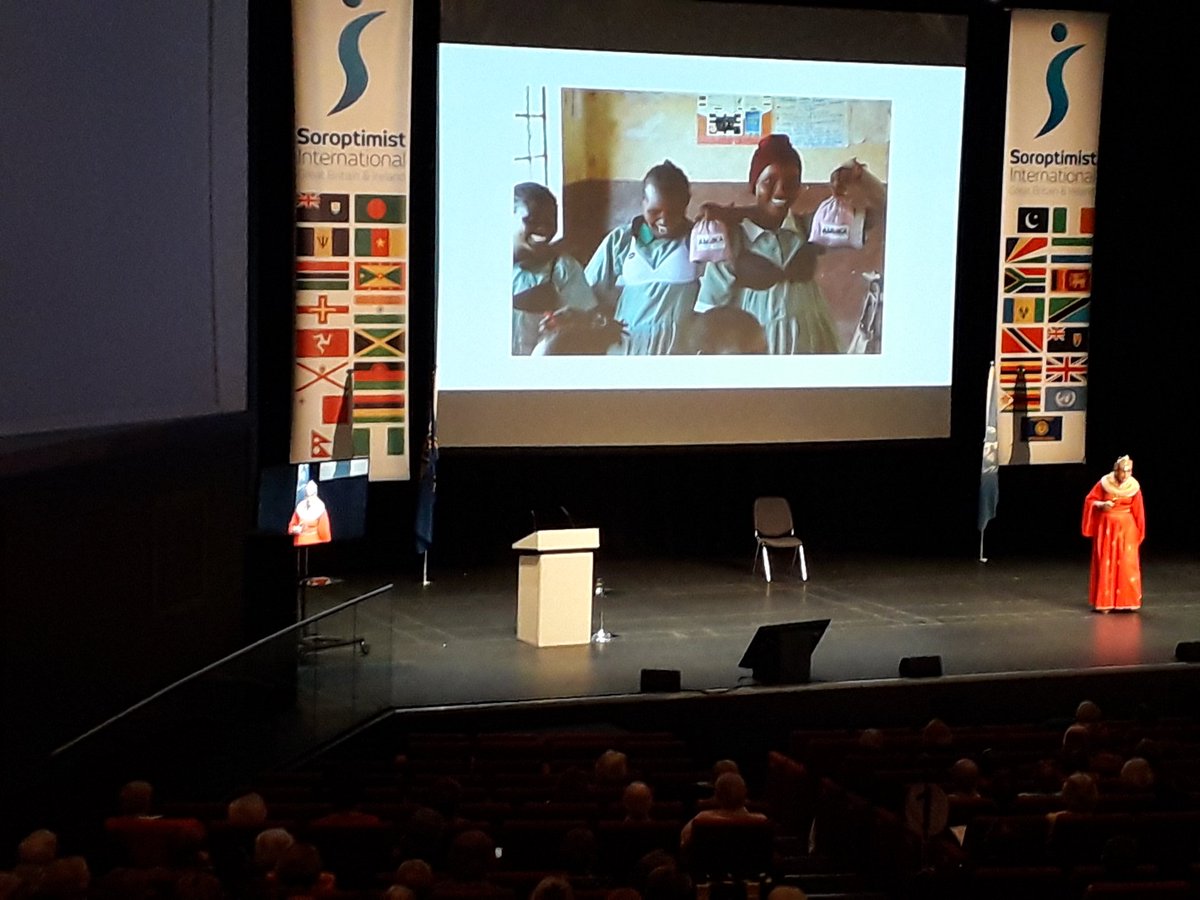Pat Black, SI Scotland South

Every year SIGBI Conference offers us ordinary people placed in extraordinary circumstances, and this year is no exception.
Ellie Bird has had an active and successful life, especially in her time as a police officer in the West Midlands and Scotland and with British Transport Police from which she has now retired.
In 2013 just before her retirement she visited Kibera, Kenya where she met with young women police officers and was taken to meet with a group of young people. She discovered that girls were subjected to sexual exploitation by gangs of boys using sanitary wear as bribes or payment.
So she established the Amuka Foundation – the word Amuka means rise up in Swahilii. However, the young people are the ones who establish the programmes and decide what they want to happen.
Ellie challenged us to recognise the difference between empower and enable. She said that she can motivate and enthuse young women but who enables them? We can provide education to equip young women with skills, and they can empower themselves with the knowledge they gain but who can enable them; how can they be enabled to make change happen?
Ellie gave us the example of Nancy, who challenged her family and would not allow herself to be cut (FGC). Her grandmother wanted to give her medicine because the family believed Nancy was cursed. Nancy convinced her grandmother who told Ellie that the community had failed the daughters because it was taboo to talk about cutting. Having educated the cutter the enabler is now Nancy’s grandmother, preventing further cutting of girls in their community.
Ellie asked whether we are bringing about transactional or transformational change as leaders. We need to be able to enable others when they are empowered to make transformational change in their lives, otherwise things will continue in the same way.
Working in Kakuma Refugee Camp in Kenya with women and children displaced through conflict, natural disasters and poverty she realised that the people she was amongst need change in their lives which would help them through their traumatic situations so she set about finding solutions.
The women and girls had fled from drought and conflict in South Sudan but little changes in their lives in the camps. They are still subjected to sexual exploitation, rape and abuse, cutting and early marriages. They need to be empowered, yes, but they also need to be enabled to make those changes.
Ellie is working with very practical solutions on the ground in Kenya, painting a picture which many of us are familiar with. We were challenged in SIGBI Federation Programme Action Committee to not just record our projects as practical actions but also to identify the outcomes, what changes because of our action?
Ellie Bird Lenawarungu pointed us in the right direction!
PS When our Chair for the session admitted she had difficulty pronouncing Ellie’s marital name, Ellie herself explained that when she was introduced to her husband to be’s family one of the criteria for joining the family on which she was judged was whether she could pronounce the family name correctly!
For more information have a read of the Amuka Foundation Newsletter.

